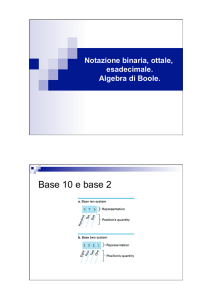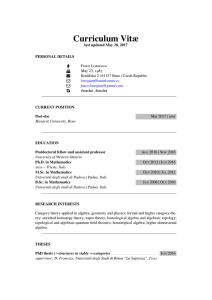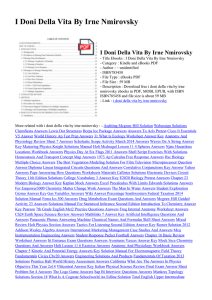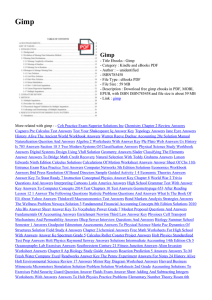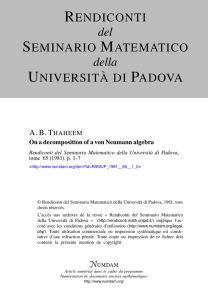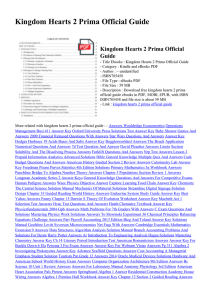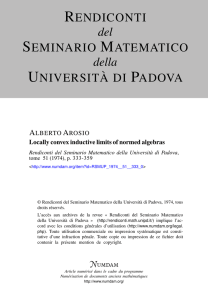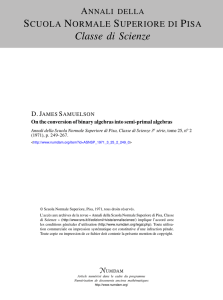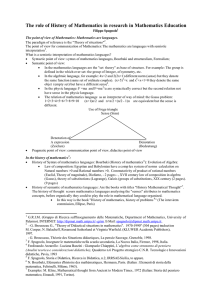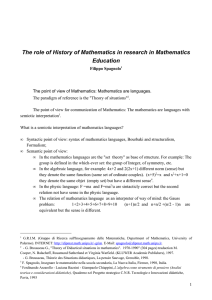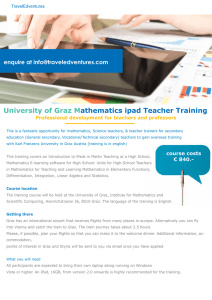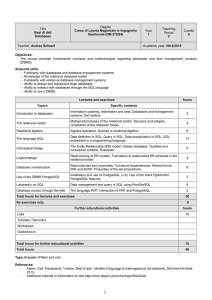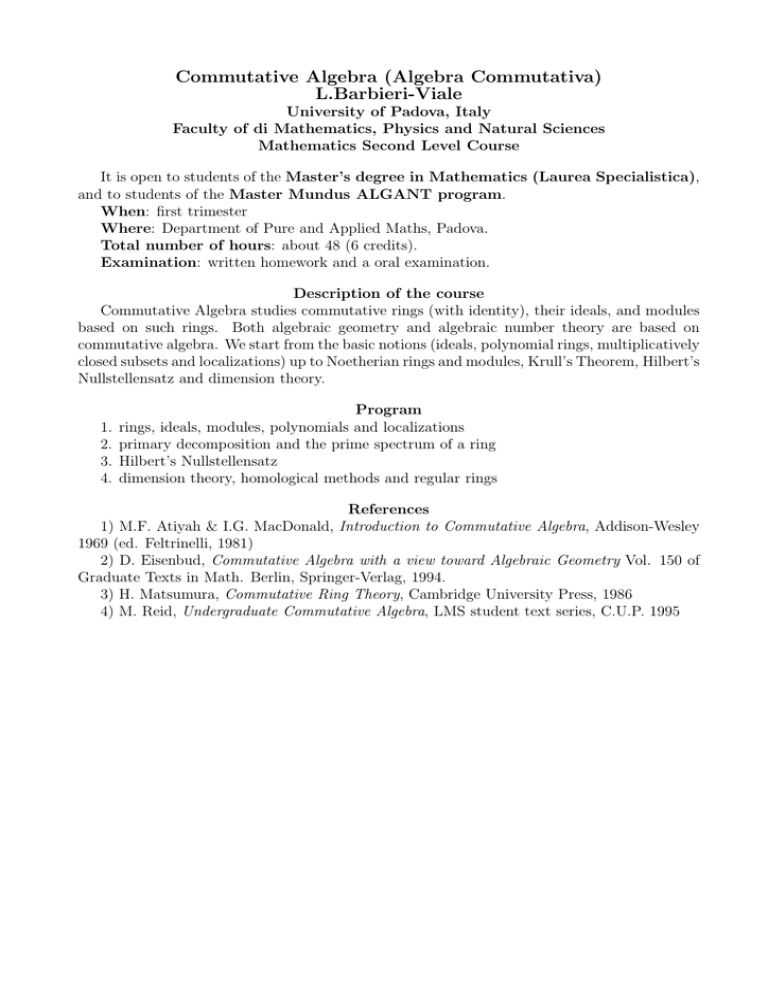
Commutative Algebra (Algebra Commutativa)
L.Barbieri-Viale
University of Padova, Italy
Faculty of di Mathematics, Physics and Natural Sciences
Mathematics Second Level Course
It is open to students of the Master’s degree in Mathematics (Laurea Specialistica),
and to students of the Master Mundus ALGANT program.
When: first trimester
Where: Department of Pure and Applied Maths, Padova.
Total number of hours: about 48 (6 credits).
Examination: written homework and a oral examination.
Description of the course
Commutative Algebra studies commutative rings (with identity), their ideals, and modules
based on such rings. Both algebraic geometry and algebraic number theory are based on
commutative algebra. We start from the basic notions (ideals, polynomial rings, multiplicatively
closed subsets and localizations) up to Noetherian rings and modules, Krull’s Theorem, Hilbert’s
Nullstellensatz and dimension theory.
1.
2.
3.
4.
Program
rings, ideals, modules, polynomials and localizations
primary decomposition and the prime spectrum of a ring
Hilbert’s Nullstellensatz
dimension theory, homological methods and regular rings
References
1) M.F. Atiyah & I.G. MacDonald, Introduction to Commutative Algebra, Addison-Wesley
1969 (ed. Feltrinelli, 1981)
2) D. Eisenbud, Commutative Algebra with a view toward Algebraic Geometry Vol. 150 of
Graduate Texts in Math. Berlin, Springer-Verlag, 1994.
3) H. Matsumura, Commutative Ring Theory, Cambridge University Press, 1986
4) M. Reid, Undergraduate Commutative Algebra, LMS student text series, C.U.P. 1995

